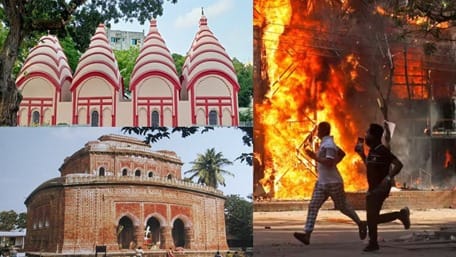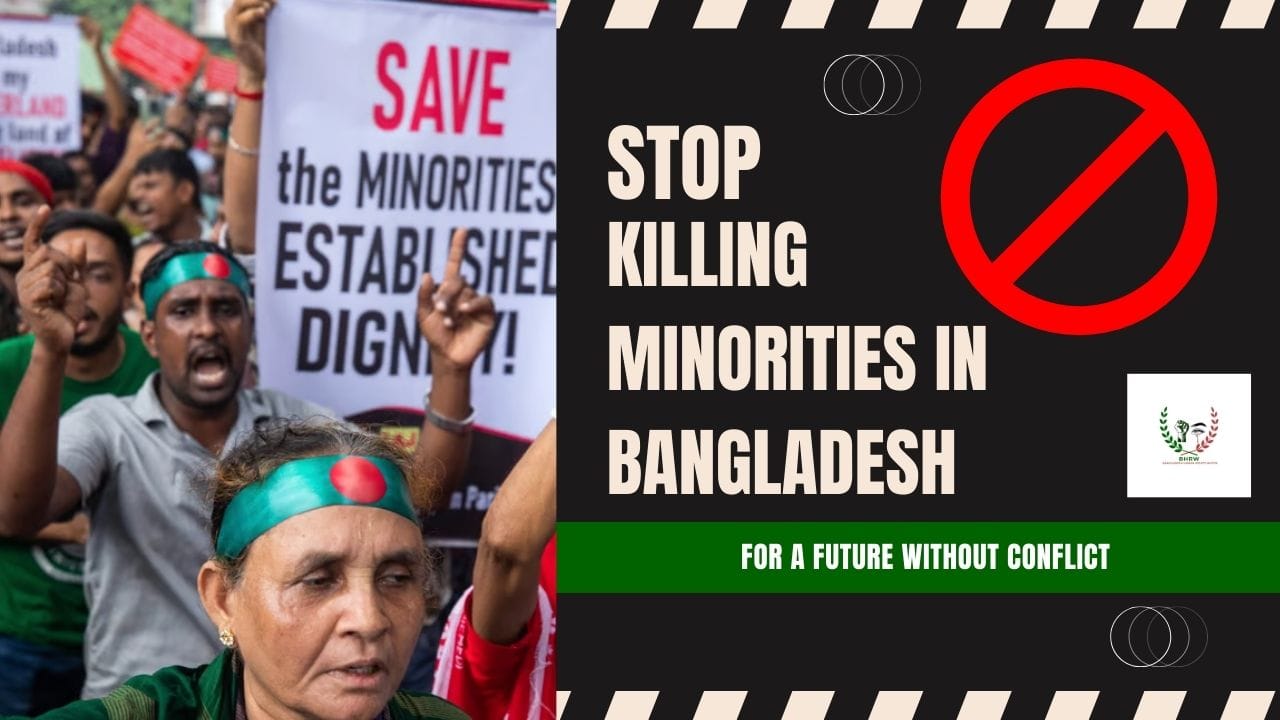Stopping Vandalism of Minority Worship Spaces in Bangladesh
The spate of vandalism of places of worship of minority communities in Bangladesh in recent times has raised very serious questions regarding religious tolerance and social harmony within the country.

The spate of vandalism of places of worship of minority communities in Bangladesh in recent times has raised very serious questions regarding religious tolerance and social harmony within the country. There have been, over the last two to three years, incidents of destruction of temples, churches, and other sacred spaces, often at moments when the existing social situation has become tense and also when the political atmosphere has become volatile. Such incidents will not only violate the sacredness of these religious places but further increase fear and insecurity in minority people, which will finally threaten the very depth of Bangladesh’s minority-majority society. Both the government and the citizens must come against these acts of violence and foster a respect-for-everyone culture of coexistence.
The vandalism of minority places of worship is an issue embedded in deeper societal issues: religious extremism, the political exploitation of the political axis, and systemic discrimination. Extremist ideologies usually seek to undermine the rights of minorities and their places of worship as symbols of a more profound struggle for power and control. Such attacks can be influenced by political agendas with intentions to polarise communities for electoral purposes. These are indeed a concerning step backward for a country that has otherwise boasted of its secularism and pluralism. Destruction of sacred spaces hurts not just the community immediately affected but also sends a chilling message to the rest of the minority communities about their safety and acceptance in society.
A multi-pronged approach will be needed to fight this trend of vandalism. First and foremost, therefore, it is the government that needs to enforce such strict laws that target hate crimes and vandalism and hold perpetrators accountable for their actions. This is not only a call for legal reforms but, above all, there is a need to enhance the training for the response by law enforcement agencies towards religiously motivated violence. Community vigilance programs will have a crucial role in preventing vandalism and its recording thus imparting an energy to the community of shared responsibility. Educational initiatives in the shape of interfaith dialogue and respect for the dignity of diverse beliefs also should be encouraged to create an atmosphere of peaceful coexistence among the members of various religious communities.

Civil society organisations and community leaders should also lead and bridge gaps for propagating dialogue among religious communities. Interfaith dialogues and collaborative community projects would build trust and dismantle stereotypes that lead to intolerance. Their focus should be on the celebration of common values and the notion that diversity enriches society rather than splitting it. The media also has an important role: to focus attention on acts of vandalism as well as to shift the narratives to accommodate those of coexistence. Accountable journalism can here raise public awareness and expose various positive examples of interfaith cooperation and mutual respect as it goes on doing.
In a nutshell, vandalism of a minority place of worship in Bangladesh is one of the most serious issues that need immediate and sustained action by all sectors of the society. By prioritising legal accountability, promotion of interfaith dialogue, and community engagement, Bangladesh can be the leader in a future where every citizen will feel safe and respected regardless of their religion. What makes it possible to protect rights for minorities and sacred space is the most crucial element of Bangladesh’s democracy and social cohesion. Now is the time to act; the celebration of ethnic and religious diversity is fundamental toward creating a harmonious, inclusive society.

